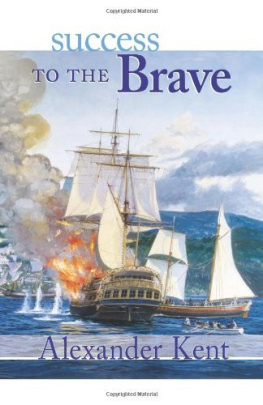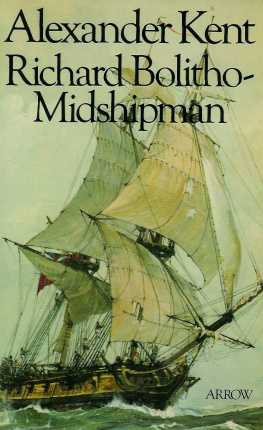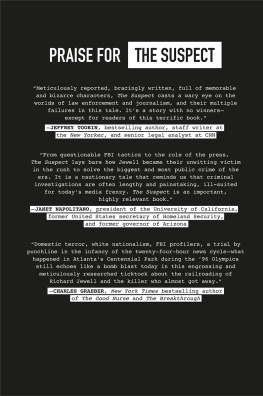Alexander Kent
Passage to Mutiny
(Bolitho 9)
Where lies the land to which the ship would go?
Far, far ahead, is all her seamen know.
And where lies the land she travels from?
Away Far, far behind, is all that they can say.
Arthur Hugh Clough
IT WAS almost noon, and the sun which blazed across Sydney harbour was pitiless in its intensity. The sky above the capital of the infant colony should have been bright blue, but it was blurred as if seen through a crudely made glass, and the air around the waterfront buildings and anchorage alike felt gritty and humid.
Isolated and apart from the varied collection of local shipping and heavier merchantmen, a man-of-war stood above her reflection as if she had been there forever, as if she would never move again. Her ensign flapped only occasionally above her high poop, and the commodores broad pendant which flew from her mainmast truck was only a little more enthusiastic.
But despite the heat and discomfort her decks were alive with watching figures, as they had been for some while, since another British man-of-war had been reported entering the anchorage.
The commodore leaned his palms on the sill of his cabin windows and withdrew them hurriedly. The dried wood felt like a heated cannon. But he watched nevertheless, conscious of the unusual silence throughout his command as the newcomer crawled closer and closer across the glittering water, her masts and yards and then her curved beakhead taking shape and clarity above the haze.
The commodores flagship was the old Hebrus, a small twodecker of sixty-four guns which had been ready for disposal after nearly thirty years of service. Then she and her commodore had been given just one more commission. Now, on this October day in 1789, anchored as senior British naval vessel in Sydney harbour, she was still expected to act if need be with her old efficiency and relish, although many of her officers secretly believed she would be hard put to reach England if her recall was ever offered.
The other ship was a frigate, common enough in times of war and at any other place where their agility and speed might be required at short notice. But out here, thousands of miles from home and familiar faces and customs, a Kings ship was rare, and all the more welcome.
Her presence accounted for the Hebruss silence. Every man watching her painstaking entrance in the merest breath of wind would be seeing her differently. A town in England perhaps. A voice. Children he could barely remember.
The commodore grunted and straightened his back, the effort bringing a prickle of sweat across his spine. It was absurd. The new arrival was the thirty-six-gun frigate Tempest, and she had never been to England at all.
He waited as his servant padded around him with dress coat and sword, the trappings of officialdom and ceremony, remembering what he had heard about Tempest. It was strange how circumstances could affect a ships purpose as well as the lives of the many who might serve her.
Six years earlier when war with the American colonies and the Franco-Spanish alliance had come to a close, ships which had been worth their weight in gold in battle were, like most of their companies, no longer wanted. A country soon forgot those who had fought and died for it, so a ships survival seemed of even less importance. But peace between the great powers had never been very secure, at least to those who had been involved in the price of each bloody victory.
And now there was renewed tension with Spain which could just as easily fan into something worse. It was over rival claims to various territories which each hoped to exploit for trading and colonial purposes. Once again the Admiralty had been directed to search around for more frigates, the life-line of every fleet.
The Tempest had been built in the Honourable East India Companys yard at Bombay just four years back. As with most of John Companys ships, she was constructed of the finest Malabar teak and to the best available design. Unlike the Navy, the Companys ships were always built with long usage in mind, and with some regard for those who had to work them.
The Admiraltys agents in Bombay had purchased her for the Kings service without her ever sailing under a Company flag. She had cost them eighteen thousand pounds. The Admiralty must have been desperate to pay such a princely sum, the commodore thought privately, or else, as was equally likely, a little extra gold had changed hands in other directions.
He gestured for his silent servant to offer him his telescope. He waited for the Hebrus to swing very slightly to her cable and then trained the glass on the slow-moving ship. Like most sea officers he was always impressed by the sight of a frigate. This one was heavier than he was used to, but still retained the graceful proportions, the appearance of latent speed and manoeuvrability which made them every junior officers dream.
Despite the damned haze he could see a cluster of figures around her forecastle, one anchor catted and ready to let go as she glided purposefully above her twin on the blue water, her stem barely raising a ripple. Under topsails and jib only, her canvas filling and then flapping emptily while she changed tack to take advantage of the poor breeze, he could almost feel the excitement across the water. The sight of a port, any port, always dulled the memory of hardship and sometimes brutal conditions which had got them this far.
The commodore had been expecting the Tempest two weeks or more earlier than this. She had come from Madras, and despatches he had already received from a courier brig had left him in no doubt Tempest would arrive on time.
But he was not irritated as he might have been with other ships. Tempest was under the command of one Captain Richard Bolitho. Not a friend exactly, but a fellow Cornishman, and that, out here in this misery of convicts and foul conditions, fever and corruption, was worth almost as much.
He levelled the glass again. He could now make out the frigates figurehead, a wild-eyed girl with streaming hair, her breasts out-thrust as she held a horn fashioned like a great shell to her lips. Her hair and torso were painted in bright gilt. Only her eyes were blue and intense while they stared far ahead as if to follow the makings of her tempest. The gilt on her and the gingerbread around the part of the poop yet visible must have cost Bolitho a small fortune, he decided. But in these waters there was little else to spend your money on. He winced as he heard his marines stamping along to the entry port. Even their boots seemed loud and heavy enough to shake the poor old Hebrus apart.
A lieutenant peered respectfully through the screen door.
The commodore nodded curtly, not wishing his subordinate to see that he was so interested in the other ship.
Yes, yes, I know. Ill come up.
Even as he reached for his hat the first bang of the salute echoed across the harbour, making the dozing birds lift from the water, flapping and squawking to reprimand the newcomer for disturbing them.
On the quarterdeck, and despite the spread of an awning, it was like a kiln.
The flag captain touched his hat and studied his superiors mood.
Tempest, thirty-six, sir. Captain Richard Bolitho.
Gun for gun the salute continued, the dark smoke pressed down on the water as if by something solid.
The commodore thrust his hands behind him.
Make a signal as soon as she is anchored. Captain repair on board.
The captain hid a smile. The mood was good. He had known times when he had made a dozen signals right in the middle of another ships last-minute manoeuvring. As if he had enjoyed the apparent confusion caused. There must be something special about this one, he thought.




